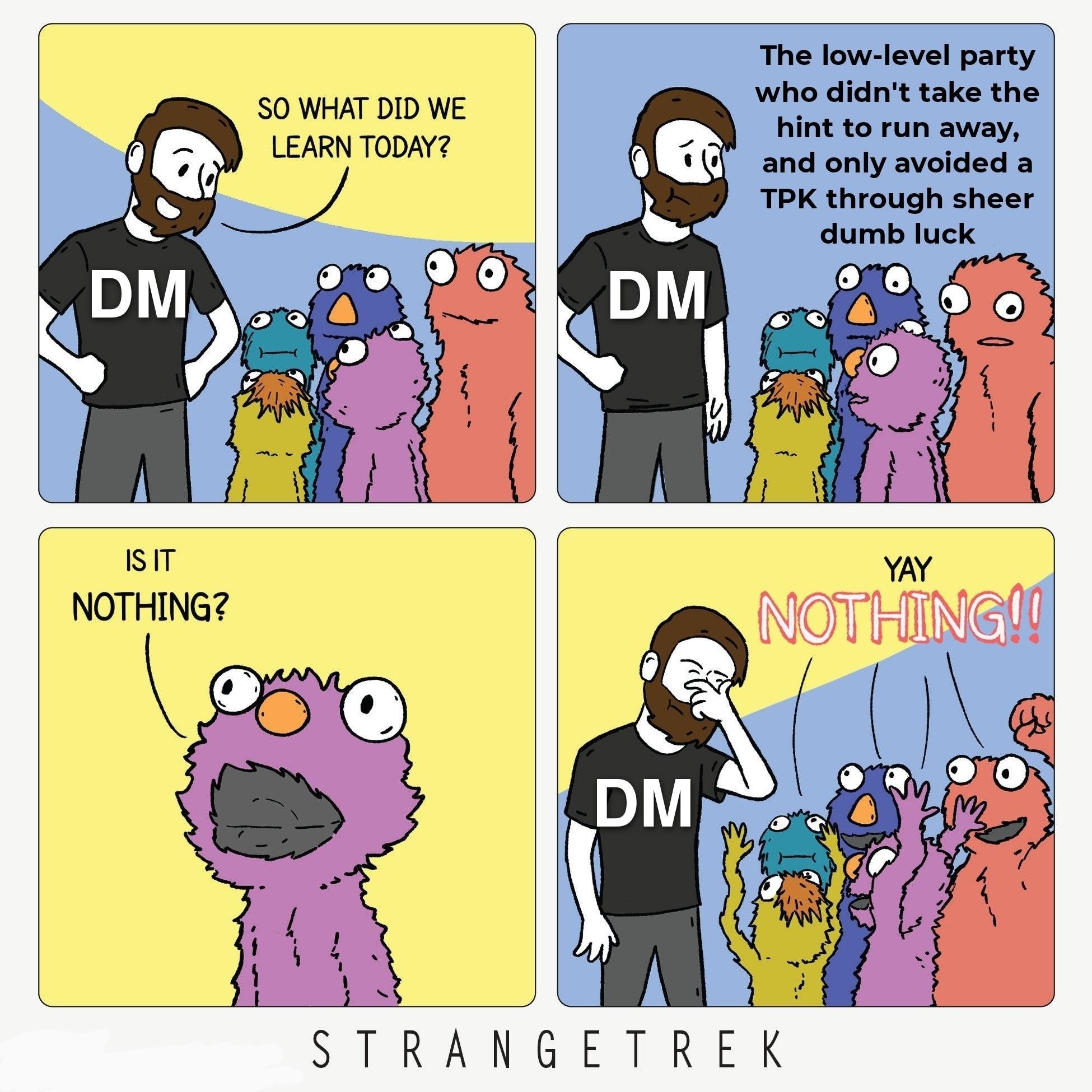this post was submitted on 16 Jul 2023
304 points (98.7% liked)
RPGMemes
11442 readers
640 users here now
Humor, jokes, memes about TTRPGs
founded 2 years ago
MODERATORS
you are viewing a single comment's thread
view the rest of the comments
view the rest of the comments

It's interesting because not knowing exactly how powerful something is feels more realistic. I think the uncertainty has it's place as a narrative device. One way to mitigate the problem you're describing would be more liberal use of passive checks, like if the party is facing down a troll, a nature check might reveal it's a powerful ancient beast. For your 17th level fighter example, a good insight check (or passive insight) would let the DM say 'dont mess with this guy' without it breaking immersion too much.
We talked about doing exactly that in my group. The problem is this clashes with the "don't hide essential information behind a check" guideline.
Like, you can say a nature check of 15 tells them some information about the troll. Let 's leave aside the problem of "well the dm is just being dramatic when he said it cuts known knights like paper" problem and say you tell the players some usable ballpark numbers. Cool, they can make an informed decision that something that swings at +10 and has an average dpr of 25 is too much.
But what if they fail the check? Do you shrug and say they don't know? Do you just let them blend themselves with this troll? That puts us back to square 1, really.
A working solution might be degree-of-success (which 5e tends to underuse). A very high check might give you the actual to-hit, damage dice, ac, but even a very low check might give something like "it can easily exceed your HP per round in damage" or something vague but mechanically grounded.
You would need to be clear when you're giving actual information and not fun flavor.